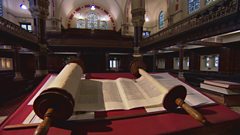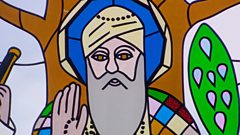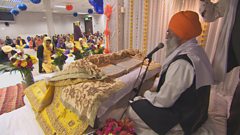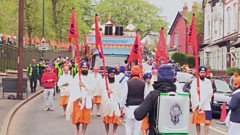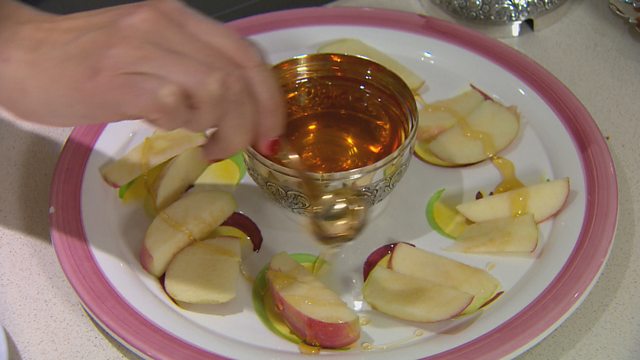
Rosh Hashanah
Charlie shares the ways Rosh Hashanah and the Jewish Day of Atonement mark the Jewish new year for his family. It’s a time to be sorry, and make a fresh start.
Charlie shares the ways Rosh Hashanah and the Jewish Day of Atonement mark the Jewish new year for his family. It’s a time to be sorry, and make a fresh start. The dates of Jewish festivals come from the Hebrew Calendar. So instead of January, the Jewish New Year begins in autumn. There is a celebration called Rosh Hashanah. It’s important at new year to repent, turn from bad behaviour and set your course to good in the coming year. Celebrations include food: apples and honey, time spent in the synagogue, the blowing of the Shofar (it’s a ram’s horn, one of the world’s oldest known wind instruments).
The blowing of the Shofar starts a ten-day period known as the 'Days of Repentance.’ This ends with Yom Kippur, the holiest day of the year. Many Jewish people fast for 25 hours and spend most of the day praying. This is a time of forgiveness, after being judged by God during Rosh Hashanah.
Charlie describes the festival’s impact: “Bit scary, bit intimidating. That’s how it feels to be judged by God. You can worry a lot that you might not be forgiven. It’s also good, because then you know what to do good next year and what not to do. After I feel very happy, definitely that a weight has been lifted off my shoulders, and just look forward to the next year which hopefully will be a good one.”
Duration:
This clip is from
More clips from Judaism
-
![]()
What is Judaism?
Duration: 03:21
-
![]()
Shabbat
Duration: 03:48
-
![]()
The Torah
Duration: 02:49
-
![]()
Passover
Duration: 04:09
More clips from My Life, My Religion
-
![]()
The Ten Gurus—Sikhism
Duration: 04:20
-
![]()
What is Sikhism—Sikhism
Duration: 03:33
-
![]()
The Ten Gurus—Sikhism
Duration: 04:20
-
![]()
Vaisakhi—Sikhism
Duration: 03:01

